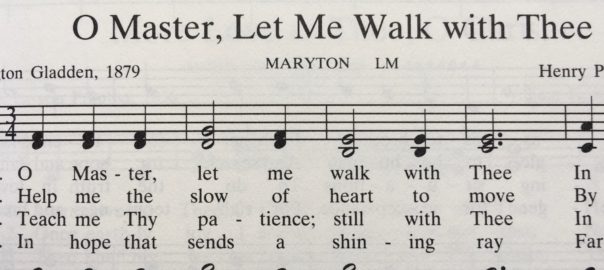When Washington Gladden wrote these words, it was shortly after the Civil War had ended in 1865. The country was in the throes of an industrial revolution. At such times, common people were often exploited in the greedy rush of the wealthy toward their own personal profit. Social justice was desperately needed.
This hymn was not so much about seeking comfort by walking with Jesus as it was standing up with courage and strength against those doing bad things. Gladden was a minister who did exactly that with his life. He helped negotiate disputes and strikes on behalf of common people, and looking after their welfare. As a result, he became the object of bitter criticism and continuous attacks from the business world.
People today do not understand the intended meaning of this hymn because the most significant verse has been omitted from our hymnals. Contemplate the depth of the words of this missing verse:
O Master, let me walk with Thee
before the taunting Pharisee;
help me to bear the sting of spite,
the hate of men who hide thy light.
A verse of “O Master, Let Me Walk With Thee”
These rather irascible lines seem out of character with the gentle humility of the other verses. The author said of this text, “It had no liturgical purpose and no theological significance, but it was an honest cry of human need, of the need for divine companionship.”
